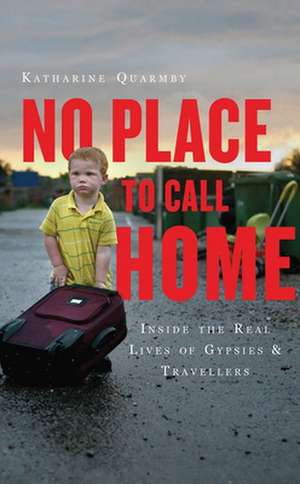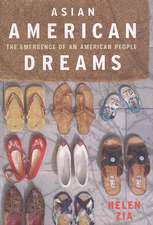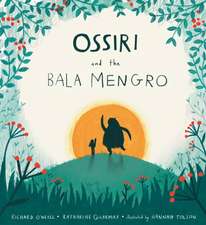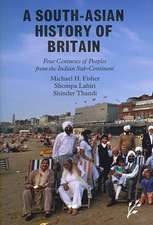No Place to Call Home: Inside the Real Lives of Gypsies and Travellers
Autor Katharine Quarmbyen Limba Engleză Paperback – 10 sep 2013
They are reviled. For centuries the Roma have wandered Europe; during the Holocaust half a million were killed. After World War II and during the Troubles, a wave of Irish Travellers moved to England to build a better, safer life. They found places to settle down—but then, as Occupy was taking over Wall Street and London, the vocal Dale Farm community was evicted from their land. Many did not leave their homes quietly; they put up a legal—and at times physical—fight.
Katharine Quarmby, an award-winning journalist who has reported on Gypsies and Travellers in The Economist for the past seven years, takes us into the heat of the battle, following the Sheridan, McCarthy, Burton and Townsley families before and after the eviction, from Dale Farm to Meriden, in the heart of England, and other trouble spots. Based on exclusive access and rich historical research, No Place to Call Home is a deeply moving and stunning narrative of long-sought justice.
Katharine Quarmby, an award-winning journalist who has reported on Gypsies and Travellers in The Economist for the past seven years, takes us into the heat of the battle, following the Sheridan, McCarthy, Burton and Townsley families before and after the eviction, from Dale Farm to Meriden, in the heart of England, and other trouble spots. Based on exclusive access and rich historical research, No Place to Call Home is a deeply moving and stunning narrative of long-sought justice.
Preț: 95.91 lei
Nou
Puncte Express: 144
Preț estimativ în valută:
18.36€ • 19.95$ • 15.43£
18.36€ • 19.95$ • 15.43£
Carte disponibilă
Livrare economică 01-15 aprilie
Livrare express 15-21 martie pentru 25.87 lei
Preluare comenzi: 021 569.72.76
Specificații
ISBN-13: 9781851689491
ISBN-10: 1851689494
Pagini: 320
Ilustrații: Illustrations (black and white)
Dimensiuni: 137 x 216 x 25 mm
Greutate: 0.39 kg
Editura: Oneworld Publications
Colecția Oneworld Publications
ISBN-10: 1851689494
Pagini: 320
Ilustrații: Illustrations (black and white)
Dimensiuni: 137 x 216 x 25 mm
Greutate: 0.39 kg
Editura: Oneworld Publications
Colecția Oneworld Publications
Cuprins
Prologue
Introduction
1. ‘Chance of a Lifetime’
2. Neighbours and Nomads
3. Never Again
4. New Travellers and the Eye of Mordor
5. Things Can Only Get Better
6. 'We Will Not Leave'
7. Payback
8. Eviction
9. Clinging to the Wreckage
10. Caught
11. Gypsy War in Meriden
12. Targeted
13. Life on the Margins
14. Revival
Acknowledgements
Further Reading
Notes
Appendix
Index
Introduction
1. ‘Chance of a Lifetime’
2. Neighbours and Nomads
3. Never Again
4. New Travellers and the Eye of Mordor
5. Things Can Only Get Better
6. 'We Will Not Leave'
7. Payback
8. Eviction
9. Clinging to the Wreckage
10. Caught
11. Gypsy War in Meriden
12. Targeted
13. Life on the Margins
14. Revival
Acknowledgements
Further Reading
Notes
Appendix
Index
Recenzii
"Essential reading for anyone who wants to get beyond the flippant, homogenising headlines." - Literary Review
"With a keen sense of compassion and unwavering frankness, Katharine Quarmby breaks through rigid stereotypes and leads us into the communities that have remained for so long without a voice of their own." —Oksana Marafioti, author of American Gypsy: A Memoir
"The eviction of gypsies from Dale Farm forms the focus of a fascinating look at the interplay across decades of anti-gypsy sentiment with issues of poverty, immigration, and countercultural groups as they influence local and national politics." —Booklist
"Fuelled by righteous fury [and] whole-hearted... As an exposure of the modern troubles of these unique tight-knit communities of Travellers, it sets you travelling on the right road." —Guardian
"An admirably measured and authoritative portrait of a diverse, isolated and often wilfully misunderstood minority… Wise, quietly incandescent [and] insightful." —Telegraph
"Powerful... An important book by an impressive journalist." —Observer
"Katharine Quarmby has gone where most journalists never dare to tread... Excellent." —Traveller Times
"The story of the most persistent and socially acceptable form of racism in the country... Deserves to be given due prominence." —Herald
"The great strength of this book lies in the access Quarmby had to those who stories she seeks to tell [and] most important is the human face the book gives to people often deprived of one... No Place to Call Home raises bigger issues about socially isolated and alienated groups everywhere." —New Statesman
"No Place to Call Home is without doubt a masterpiece. Quarmby put the jigsaw together, and left out the lies and propaganda.... Frank and powerful." —Jess Smith, Scottish Traveller and author of Jessie's Journey
"If you only know what My Big Fat Gypsy Wedding has told you, then what a strange view you must have of the Gypsy and Traveller community! Quarmby's book is the first serious account of who we really are, our history and endless struggles... An excellent book." —Candy Sheridan, Irish Traveller and Vice Chair of the Gypsy Council
"With a keen sense of compassion and unwavering frankness, Katharine Quarmby breaks through rigid stereotypes and leads us into the communities that have remained for so long without a voice of their own." —Oksana Marafioti, author of American Gypsy: A Memoir
"The eviction of gypsies from Dale Farm forms the focus of a fascinating look at the interplay across decades of anti-gypsy sentiment with issues of poverty, immigration, and countercultural groups as they influence local and national politics." —Booklist
"Fuelled by righteous fury [and] whole-hearted... As an exposure of the modern troubles of these unique tight-knit communities of Travellers, it sets you travelling on the right road." —Guardian
"An admirably measured and authoritative portrait of a diverse, isolated and often wilfully misunderstood minority… Wise, quietly incandescent [and] insightful." —Telegraph
"Powerful... An important book by an impressive journalist." —Observer
"Katharine Quarmby has gone where most journalists never dare to tread... Excellent." —Traveller Times
"The story of the most persistent and socially acceptable form of racism in the country... Deserves to be given due prominence." —Herald
"The great strength of this book lies in the access Quarmby had to those who stories she seeks to tell [and] most important is the human face the book gives to people often deprived of one... No Place to Call Home raises bigger issues about socially isolated and alienated groups everywhere." —New Statesman
"No Place to Call Home is without doubt a masterpiece. Quarmby put the jigsaw together, and left out the lies and propaganda.... Frank and powerful." —Jess Smith, Scottish Traveller and author of Jessie's Journey
"If you only know what My Big Fat Gypsy Wedding has told you, then what a strange view you must have of the Gypsy and Traveller community! Quarmby's book is the first serious account of who we really are, our history and endless struggles... An excellent book." —Candy Sheridan, Irish Traveller and Vice Chair of the Gypsy Council
Notă biografică
Katharine Quarmby is an investigative journalist writing on politics and current affairs for The Economist, The Times (London) and the Guardian, among others. She has been named a finalist for the prestigious Paul Foot Prize for her campaigning reports, and produced documentary films for the BBC. For her first book, Scapegoat, on disability hate crimes in England, she won the AMIA International Literature award.
Extras
From chapter 1, ‘Chance of a Lifetime’:
He was waiting outside a station for me, an unassuming, quietly spoken man, wearing a trilby hat, which was his trademark. The fine April morning suited Essex, particularly this part of the Essex countryside, where the garden centres and the houses start to run out until you turn a corner on a dusty, hole-pocked road and find yourself in view of a Traveller site.
The man in the trilby was Grattan Puxon, who had been campaigning for Traveller sites for over forty years before this trip in 2006 to visit Dale Farm. From the outside, it had all the trappings of a place under siege — the heavy gate made of scaffolding poles barred the way in, though a banner inscribed “Save Dale Farm” waved invitingly. Dale Farm, billed by the authorities and the media as the largest encampment of Gypsies and Travellers in Britain, sprawled over several acres and was home to about one thousand people. Some of the pitches had barbed wire running along their perimeters.
Grattan turned right onto the grandly named Camellia Drive and came to a cream-coloured chalet set in an immaculate pitch, which was decked out with flowers in pots. A low, red brick wall with statues of lions proudly sitting on the gateposts greeted you as you approached the home of Mary Ann McCarthy.
Mary Ann, a softly spoken grandmother of seven with dark, carefully set hair, welcomed us into her spotless chalet. Grattan and I sat down on her cream three-piece suite, covered in plastic to protect the fabric, and were offered cups of strong tea. In the kitchen, one of Mary Ann’s five daughters was hard at work, scrubbing out every single cupboard. Most people from the ‘settled community’ have heard that Traveller sites and homes are dirty places – a pernicious myth. The chalet was tidy and clearly cherished, with alcoves built to show off statues of Jesus and the Virgin Mary, alongside Mary Ann's Crown Derby china and lovingly dusted wax flowers and fruit.
In 2004 she had taken the fateful decision to move to Dale Farm. “It was government guidance; they told us that Gypsies and Travellers should provide for themselves, so we did that. We bought the scrap-yard, one half of it was already passed for planning permission and our relations were living there.” Her five daughters and son-in-law lived on the site, and she had grandchildren dashing in and out of the chalet before and after school. She was learning how to read for the first time. She and her grandchildren would pore over the easy readers from school, learning together.
‘Dale Farm is the chance of a lifetime. We can get education, start to use computers and all. We won’t have the time to get education if we get moved from post to pillar again’, Mary Ann told us. ‘We want to live like human beings, not like rats.’ Dale Farm was the epitome of a settled, matronly, Traveller’s life. ‘We get smothered living in a house; we feel like we have been put in jail’ – her chalet was the perfect home. But her wish, to be left alone to live with her family in a close-knit community, was not to be.
He was waiting outside a station for me, an unassuming, quietly spoken man, wearing a trilby hat, which was his trademark. The fine April morning suited Essex, particularly this part of the Essex countryside, where the garden centres and the houses start to run out until you turn a corner on a dusty, hole-pocked road and find yourself in view of a Traveller site.
The man in the trilby was Grattan Puxon, who had been campaigning for Traveller sites for over forty years before this trip in 2006 to visit Dale Farm. From the outside, it had all the trappings of a place under siege — the heavy gate made of scaffolding poles barred the way in, though a banner inscribed “Save Dale Farm” waved invitingly. Dale Farm, billed by the authorities and the media as the largest encampment of Gypsies and Travellers in Britain, sprawled over several acres and was home to about one thousand people. Some of the pitches had barbed wire running along their perimeters.
Grattan turned right onto the grandly named Camellia Drive and came to a cream-coloured chalet set in an immaculate pitch, which was decked out with flowers in pots. A low, red brick wall with statues of lions proudly sitting on the gateposts greeted you as you approached the home of Mary Ann McCarthy.
Mary Ann, a softly spoken grandmother of seven with dark, carefully set hair, welcomed us into her spotless chalet. Grattan and I sat down on her cream three-piece suite, covered in plastic to protect the fabric, and were offered cups of strong tea. In the kitchen, one of Mary Ann’s five daughters was hard at work, scrubbing out every single cupboard. Most people from the ‘settled community’ have heard that Traveller sites and homes are dirty places – a pernicious myth. The chalet was tidy and clearly cherished, with alcoves built to show off statues of Jesus and the Virgin Mary, alongside Mary Ann's Crown Derby china and lovingly dusted wax flowers and fruit.
In 2004 she had taken the fateful decision to move to Dale Farm. “It was government guidance; they told us that Gypsies and Travellers should provide for themselves, so we did that. We bought the scrap-yard, one half of it was already passed for planning permission and our relations were living there.” Her five daughters and son-in-law lived on the site, and she had grandchildren dashing in and out of the chalet before and after school. She was learning how to read for the first time. She and her grandchildren would pore over the easy readers from school, learning together.
‘Dale Farm is the chance of a lifetime. We can get education, start to use computers and all. We won’t have the time to get education if we get moved from post to pillar again’, Mary Ann told us. ‘We want to live like human beings, not like rats.’ Dale Farm was the epitome of a settled, matronly, Traveller’s life. ‘We get smothered living in a house; we feel like we have been put in jail’ – her chalet was the perfect home. But her wish, to be left alone to live with her family in a close-knit community, was not to be.










